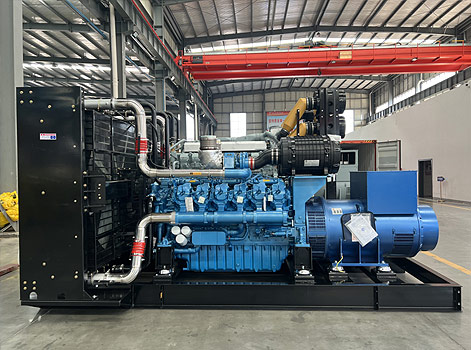
The power crisis in Europe has completely exploded. The situation is particularly grim in France and Germany, where the basic load price delivered by France next year reached 1130 euros per megawatt, breaking the 1000 euro mark for the first time in history, an increase of more than 1000 percent over the same period last year. Similar products in Germany also set a new record, reaching 995euros per megawatt-hour, a cumulative increase of 70 per cent in a single week. Czech Prime Minister Fiara, who holds the rotating presidency of the European Union, said that an emergency meeting of energy ministers of EU member states will be held in the near future to focus on the energy crisis facing the European Union.
At the critical moment, the European energy giant, Total Energy, suddenly issued a "exit" signal. Recently, it announced that it will transfer its natural gas project Terneftegaz in Russia, and the company will gradually suspend other commercial activities in Russia, including oil and gas assets.
It is worth noting that the energy crisis is still simmering. Dmitry Medvedev, vice chairman of the Russian Federation Security Council, raised his forecast for natural gas prices and now believes that prices can rise to 5000 euros per 1,000 cubic meters by the end of this year. Earlier, Medvedev predicted that EU natural gas prices could reach $4000 by the end of the year.
At the same time, the United States is also planning big moves. The Biden administration has warned major U.S. refiners that it may take "emergency measures" to curb fuel exports, as gasoline and diesel stocks in the northeastern United States are still near record lows, according to the Wall Street Journal. In addition, as the Gulf of Mexico enters the hurricane season, there is a risk of production cuts that could lead to a renewed surge in US fuel prices ahead of November's mid-term elections.
The electricity price has completely exploded, and the energy crisis in Europe is getting worse.
The power crisis in Germany and France is particularly serious, and electricity prices continue to set new records. On August 26th local time, the basic load electricity price delivered by France next year reached 1130 euros per megawatt hour, exceeding 1000 euros for the first time in history, soaring by 25% within the day, and rising about 10 times in the past year. Similar products in Germany also set a new record, with an intraday increase of 33% to 995 euros per megawatt hour, up about 70 per cent this week (August 22-26).
In addition, forward electricity prices in Britain soared to 1000 pounds per megawatt hour from 242 pounds per megawatt hour in June.
In the latest conference call between energy traders and the management of National Grid, the UK power network operator, words such as "emergency" and "shortage" are frequent, and front-line traders warn that this winter in Europe will be very difficult.
Moreover, in the view of traders, one of the biggest concerns right now is what will happen if European countries adopt beggar-thy-neighbour policies and shut down cross-border power supplies in the event of systemic pressure. Norway is already considering this approach.
At present, the main reasons for the outbreak of the power crisis in Europe come from two aspects, one is that Russia is very tight with Europe's natural gas supply, and the second is that Europe suffered an epic drought and high temperature in the summer of 2022.
At present, the gas delivery volume of "Beixi-1" is only 20% of the full load, and in the latest measures to fight back against European sanctions, the "Beixi-1" natural gas pipeline will stop supplying gas for another three days from the 31st.
Due to the tight supply situation, European benchmark natural gas futures prices hit a new high again on August 26 local time, rising for the sixth consecutive week, the longest continuous rise so far this year. In the face of a sudden drop in temperatures or insufficient gas storage, natural gas prices in Europe could break through the historic $5000 per thousand cubic meters this winter, Russian experts have warned.
In addition, unusually hot and dry weather has made the river water too hot to be used to cool reactors at nuclear power plants, hitting the supply of nuclear power in Europe.
In France, for example, nuclear power generation has fallen to its lowest level in more than 30 years this year, and EDF's nuclear reactors were only 42 per cent available as of Friday, according to grid operator RTE. Until then, France has been one of Europe's largest net exporters of electricity, but this year it was forced to import electricity, further exacerbating the power crisis in Europe.
Recently, EDF announced that many of its nuclear power plants will resume operation later than previously expected. It means that the French electricity market will be very tight this winter, especially when the wind is weak.
Kathryn Porter, an energy consultant at Watt-Logic, warned that European countries could try to import electricity at the same time, which would pose huge challenges, with some countries rationing industrial electricity.
Such a high electricity price may force some industries to cut production on a large scale or even stop production. Across Europe, fertiliser producers have sharply reduced their production capacity, posing a threat to food and agriculture.
Analysts warn that many companies are stopping production as they struggle to keep up with soaring costs, meaning inflationary pressures on end users will continue to rise.
In the face of an increasingly dangerous energy crisis, Czech Prime Minister Fiara, who holds the rotating EU presidency, said on social media on August 26 that the Czech Republic would convene an emergency meeting of energy ministers of EU member states in the near future to focus on the current energy crisis facing the European Union.
Energy giant emergency "retreat"
At the critical moment, the European energy giant suddenly issued a "retreat" signal.
TotalEnergies, a French energy company, has said it will transfer its stake in Terneftegaz, a natural gas project in Russia, to its Russian joint venture partner Novatek.
Total said in the announcement that it had signed a 49 per cent stake transfer agreement with Novatek for Terneftegaz. Under customary terms, the deal is expected to close in September 2022.
According to related reports, Terneftegaz, which Total sold off, is a joint venture between Russian gas giant Novatek and Total to jointly develop a natural gas field in Siberia, the onshore gas.
Comprehensive Power Solution Expert.
Add: Bei Hai Lu, Fangzi District, Weifang City, Shandong Province, China
Tel: +86-15376693332
Whatsapp: +86-15376693332
E-mail: worldheavyofficial@gmail.com
worldchina2021@163.com
vodaerimportandexport@gmail.com
